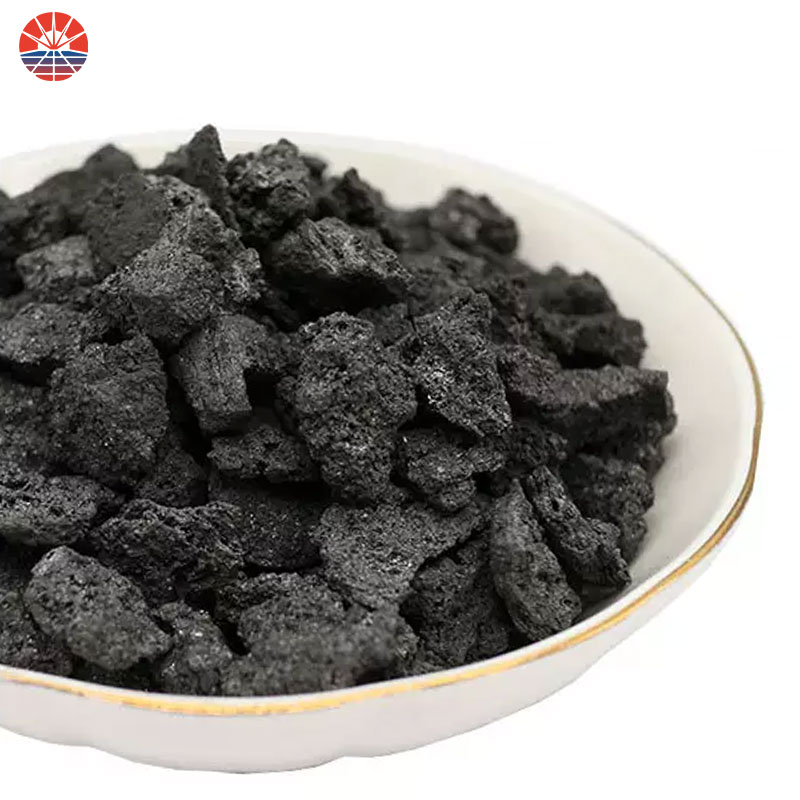Calcined Petroleum Coke for Steel Factory
High Carbon Content: Calcined petroleum coke typically has a high carbon content, making it an excellent source of carbon in the production of carbon anodes for the aluminum industry.
Low Volatile Content: This low volatile content is beneficial in applications where stability and consistency in carbon composition are essential.
High Heat Content: Calcined petroleum coke has a high heat content, which is advantageous in applications where a high-energy fuel source is required, such as in the production of steel and other high-temperature industrial processes.
Chemical Stability: Calcined coke is chemically stable, which is important for applications where the material needs to resist chemical reactions or provide a stable carbon source in various industrial processes.
Calcined Petroleum Coke for Steel Factory
Calcined Petroleum Coke (CPC) is a critical raw material in the production of carbon anodes for aluminum smelting and in the manufacturing of certain steel and titanium alloys. It is produced by heating green petroleum coke to remove volatile matter and impurities and is typically used as a source of carbon in various industrial applications. For the steel industry, CPC is primarily used in the production of steel through the electric arc furnace (EAF) route.
Here are some key points regarding the use of Calcined Petroleum Coke in the steel industry:
Carbon Additive: Calcined Petroleum Coke serves as a carbon additive in the production of steel. It is added to the steelmaking process to provide carbon content, which is essential for the reduction of iron oxide and the production of molten iron.
Electric Arc Furnace (EAF) Steelmaking: In EAF steelmaking, scrap steel is melted using electric arcs generated by graphite electrodes. Calcined Petroleum Coke is often used as a carbon source in the electrodes, providing the necessary carbon for the electrical conductivity and heat required in the process.
Cost and Performance: The choice of carbon source, including Calcined Petroleum Coke, is influenced by factors such as cost, availability, and the specific requirements of the steel production process. CPC is preferred in certain applications due to its performance characteristics.
Quality Specifications: The quality of Calcined Petroleum Coke is crucial for its effectiveness in steel production. Parameters such as sulfur content, volatile matter, ash content, and real density are important considerations to ensure the coke meets the specific requirements of the steel industry.
Anode Production for Aluminum Smelting: While the primary focus of CPC is in the aluminum industry, where it is used in the production of carbon anodes for smelting aluminum, the steel industry also utilizes CPC for specific applications.
Specification of Calcined Petroleum Coke for Steel Factory
Product name | Calcined petroleum coke | Batch No. | RS2023-06-13 |
Sampling Site |
| Sample condition |
|
Acceptance date | 2023.06.13 | Report date | 2023.06.14 |
Test items | Standard | Test results | |
Appearance | This product should be black solid | Complies | |
Fixed carbon | ≥98% | 98.50% | |
Moisture | ≤0.5% | 0.04% | |
ASH | ≤0.45% | 0.40% | |
Volatile matte | ≤0.5% | 0.49% | |
Sulfur | ≤1.0% | 0.40% | |
Conclusion | Product conforms to specification. | ||
Examination clerk | 王新丽 | Reviewer | 吴亚光 |
Line of production
The manufacturing process of calcined petroleum coke (CPC) involves several stages, including raw material extraction, preparation, calcination, and quality control.











